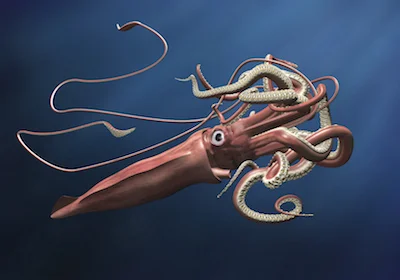Introduction
For this WebQuest you are a world famous marine biologist.
Marine biologists are scientists who study things that live in oceans, from the tiniest organisms to whales.
Setting the scene:
Students at a school have decided to adopt one threatened marine species and target their fundraising to go towards the conservation of that species. The school has invited a number of marine biologists to give information about different species, after which the students will decide which one to choose.
Your task:
You and other marine biologists, will prepare and give a talk about one marine animal, either a mammal, a fish, a reptile or an invertebrate. The species must be found in Australian waters, either as a permanent resident or as a migrating visitor.
Your focus question is: what endangered marine creature is unique and should be a high priority for conservation?
Your talk should include a description of the creature, and some of its behaviours, its life cycle, its diet and habitat. Include information about why it is threatened, what action if any is already underway to protect it and perhaps what future action is planned. End your talk with reasons why you think the school should adopt this species to help it survive.
The Process and Resources
Your first step is to choose which marine creature to talk about. The creature can be a mammal, fish, crustacean, jellyfish or other ocean-dwelling creature.
Each biologist must choose a different marine animal. However, two marine biologists can each choose a different group within a species: for example, there are leafy sea dragons and weedy sea dragons; there are different sea turtles and different sharks.
When you have chosen your marine animal, make a list of questions to research, such as:
•What does it look like?
•What are its behaviours?
•What is its habitat and where is it found?
•What does it eat?
•What is its life cycle?
•Why is it endangered?
•What actions are needed to conserve this animal?
By locating gathering the resources below and then reading about the topic you will acquire the knowledge needed for the task.
Getting started
An index of websites has been set up to start you off:
http://www.kidcyber.com.au/marine-animals-webquest-index
You can do further searches for yourself by typing into a search engine the name of your chosen animal. Sometimes it helps to add ‘for kids’. For example: little penguin for kids or humpback whale for kids.
•Focus your search
Write a list of questions that you want to answer. These questions become headings for your notes.
•Organise your information as you find it
kidcyber data charts can help organise your inquiry. Set them up like this:
•Using your notes
When you have gathered the information, turn your notes into sentences and group them together in paragraphs. This will form the basis of your talk.
Collect images or make drawings to assist illustrate your talk.
Include some information about yourself in your talk, to establish your knowledge and that you are an expert about this animal.
You can make a Power Point presentation if you like, using photos and your research questions. These will be on the screen as you talk. Include information about the uniqueness of this animal species and why it deserves to be adopted by the school.
Presentation
Present your talk to the class. The other students will/may all take on roles as students, teachers, parents or the Principal. Be prepared to answer questions at the end of your talk… remember, you want them to choose your marine animal as the one to adopt!
Conclusion
After all the marine biologists have spoken, is there a common message that has emerged? Do you have any concerns about the marine environment and about threatened marine animals? Are there any actions you could or would take to help address those concerns? Which organisations might be able to help?
Evaluation
How do you think you went with this WebQuest? What did you do well and what do you think you might focus on to improve in future research work?
Write a self evaluation of your work and discuss it with your teacher.


